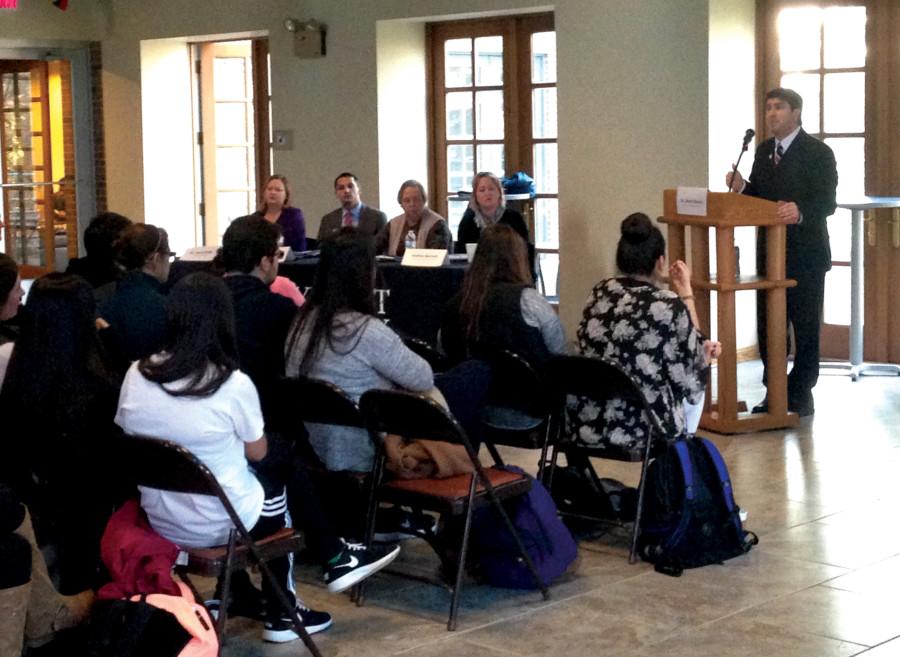Students inquire about the new calendar, core at forum
David Dausey, Ph.D., and a panel of faculty addressed questions from students regarding the structural changes that will take effect next fall.
November 17, 2015
Mercyhurst Student Government held its first Town Hall forum on Wednesday, Nov. 11, to talk with students about the changes being made to the academic calendar.
Students were given the opportunity to ask questions to administrators about the new semester system and core changes.
The administrators on the panel were David Dausey, Ph.D., Andrea Barnett, Joseph Howard, Michele Wheaton and Laura Zirkle, Ph.D.
“This forum is to get students thoughts and perspectives about the changes being made,” David Dausey, Ph.D., provost and vice president of academic affairs said.
Starting next year, Mercyhurst is getting rid of the their 4-1-4 semester system with a j-term and replacing it with more traditional 16-week semesters. Students will have the option to take a 16-week course, an eight-week mini-semester course, or a combination of both.
“The intent of the new calendar change is to have students take a combination of both mini-semester class and regular semester classes,” Andrea Barnett, assistant vice president for academic affairs said.
The length of classes are changing next year as well. Monday, Wednesday, Friday classes will now be 50 minutes. Those on the mini-semester classes will be 75 minutes long.
Mini-semesters will allow for more study abroad opportunities and can make the course load lighter for in-season athletes, according to Dausey.
Residents Assistants who are still looking to study abroad might still have the opportunity without forfeiting their positions.
“We are trying to come up with a schedule that will still give RAs the opportunity to study abroad if they wish, while still having enough on campus,” said Laura Zirkle, vice president for student life.
Changes being made to the core will allow more choices and greater flexibility for students. It will also give students a better opportunity to complete a minor or to take free electives that fall outside of their major requirements.
“We also felt we needed to improve and make the core better. We want it to me more inclusive, less restrictive and include less classes,” Dausey said.
The administration wants to have fewer categories in the core but more options within each category and is working with the faculty body to help with the modifications.
J-term courses, core courses and major classes will be modified to fit as mini semester and if that does not work, then the courses will be revamped all together.
There will still be the 18-credit limit for mini semester classes; however, students are not allowed to take all classes during a mini-semester and take the next semester off.
As of now, it is unclear the maximum amount of classes allotted during mini-semesters, but the consensus on that is around two or three classes.
The new calendar changes will also make taking summer classes easier and more affordable. During the summers, there will also be opportunities for students to study abroad.
Another change being made will be a day off during the time to schedule for classes so students and faculty have an easier time meeting to go over class options.
The new schedule will allow breaks between each mini- semester. Winter break will last four weeks and spring term will end earlier in May.

